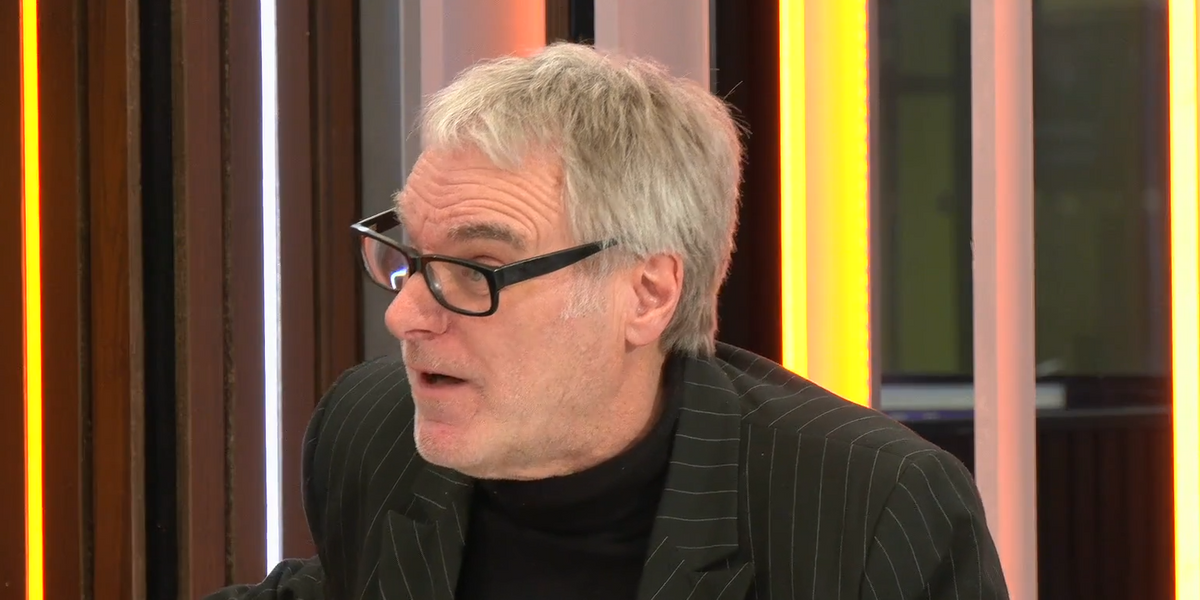Microsoft has announced a breakthrough that could lead to the most powerful quantum computers of all time.
They created a new chip, called ‘Majorana 1,’ which is powered by a new state of matter called a topological state.
This phase of matter is not characterized by the traditional physical properties that define a solid, liquid or gas.
Instead, it’s defined by its topological properties — how the material’s wavefunctions behave and connect across space.
This topological state is created by the chip’s topoconductor, a first-of-its-kind material that produces fundamental units of information that serve as the building blocks for quantum computers.
To achieve this topological state, the researchers had to build the chip using an entirely new combination of materials: indium arsenide and aluminum.
Microsoft says Majorana 1 will pave the way for quantum computers that can solve ‘meaningful, industrial-scale problems in years, not decades.’
Such issues would include everything from how to combat pollution to developing life-saving medications.
Microsoft researchers have invented a computer chip that leverages a new state of matter. They say it could lead to the most powerful quantum computers of all time

The Majorana 1 chip uses a first-of-its-kind material that isn’t a solid, liquid or gas to produce fundamental units of information that serve as the building blocks for quantum computers
Quantum computers powered by Majorana 1 would be significantly more powerful than today’s most sophisticated supercomputers, Microsoft claimed in a Wednesday announcement.
While regular computers process information as ones and zeros, quantum computers process information through the properties of atomic particles, which are measured in qubits.
Quantum computers could easily solve problems that would take today’s most powerful supercomputers thousands of years to address.
But researchers have yet to bring the full potential of quantum computing to fruition.
Although quantum computers do currently exist, they’re not very powerful because they operate on a very small scale, and scaling them up has proved challenging.
The Majorana 1 could fix that because this chip produces qubits that are more reliable and scalable than those produced by existing quantum computer chips, Microsoft claims.
‘Topocunductors and the new type of chip they enable offer a path to developing quantum systems that can scale to a million qubits and are capable of tackling the most complex industrial and societal problems,’ Microsoft said.
The chip itself fits in the palm of your hand, but could one day process and contain an unprecedented amount of information.

Majorana 1 offers a path to developing quantum systems that can scale to a million qubits, which would be far more powerful than even the world’s fastest supercomputer: El Capitan

At that scale, quantum computing could easily solve problems that would take today’s most powerful supercomputers thousands of years to address (STOCK)
‘Whatever you’re doing in the quantum space needs to have a path to a million qubits,’ said Microsoft technical fellow Chetan Nayak.
‘If it doesn’t, you’re going to hit a wall before you get to the scale at which you can solve the really important problems that motivate us. We have actually worked out a path to a million,’ he added.
‘All the world’s current computers operating together can’t do what a one-million-qubit quantum computer will be able to do,’ Microsoft claims.
This marks a major step toward building quantum computers than can deliver ‘transformative, real-world solutions,’ according to the tech giant.
These computers of the future could help experts innovate game-changing solutions such as ways to break down microplastics into harmless byproducts or self-healing materials for construction, manufacturing or healthcare.
The company outlined their breakthrough in a paper published in the journal Nature.

Other major tech companies are working on their own quantum computing breakthroughs. Google announced their own chip, called Willow, in December 2024
The paper describes how the researchers crafted their topoconductor using an entirely new combination of materials: indium arsenide and aluminum.
This allowed them to ‘coax new quantum particles called Majoranas into existence and take advantage of their unique properties to reach the next horizon of quantum computing,’ Microsoft claims.
But reaching that new horizon is still years away, and Microsoft did not say exactly how long it would take to scale Majorana 1 so that it can actually hold a million qubits.
Meanwhile, other major tech companies are working on their own quantum computing breakthroughs.
In December of last year, Google announced its own quantum computing chip called Willow, claiming it can perform a calculation in five minutes that a traditional computer would take nearly an eternity to do.
And IBM launched its most advanced quantum computers yet last November.
Thus, it would appear the quantum computing race is on.
With all the recent progress, industry experts estimate that the first commercially viable quantum computers could begin to emerge within the next five years or so.
Whether Microsoft’s Majorana 1 chip gives them a competitive edge remains to be seen, but this achievement brings humanity one step closer to having the power of quantum computing at our fingertips.










